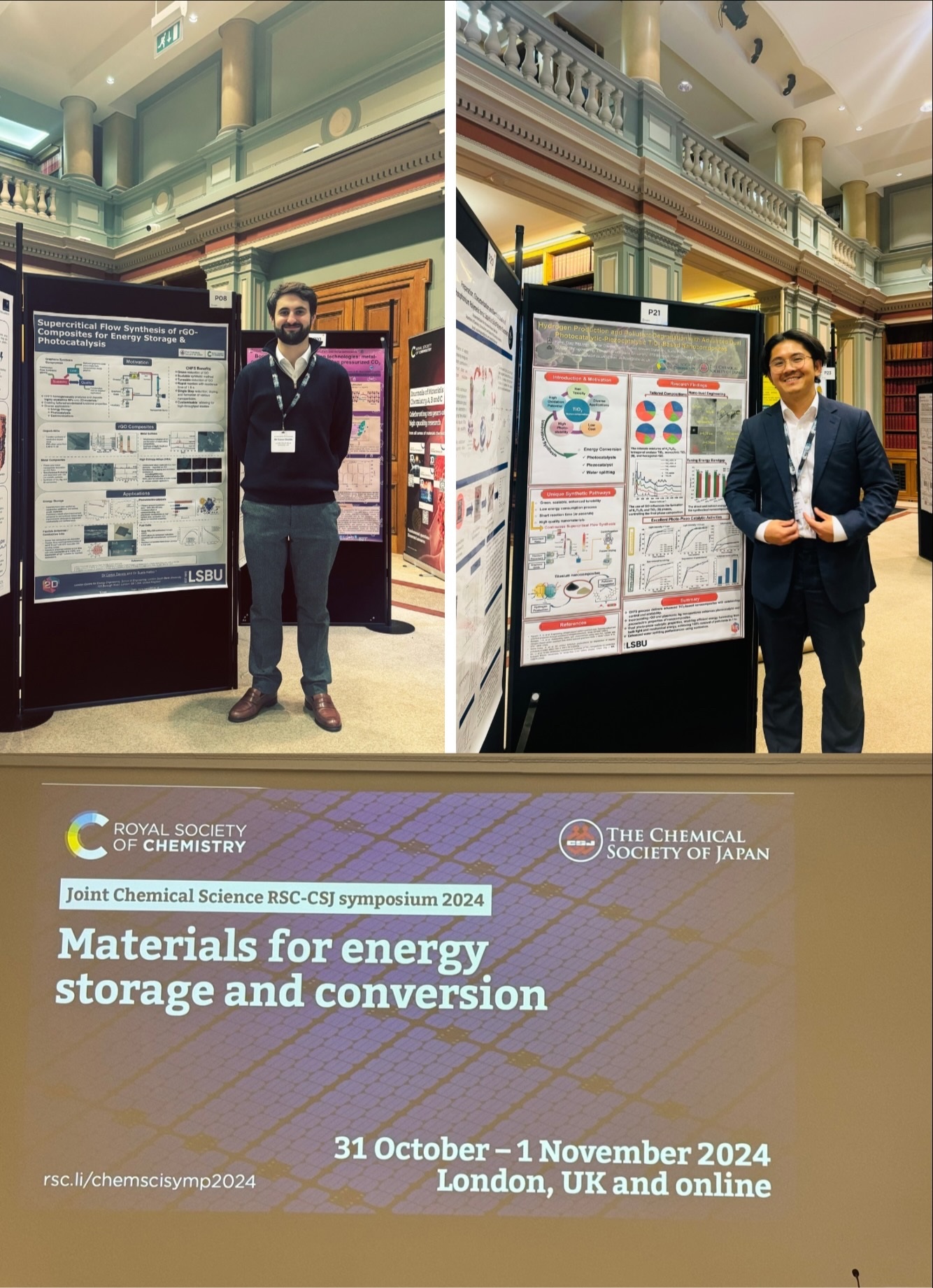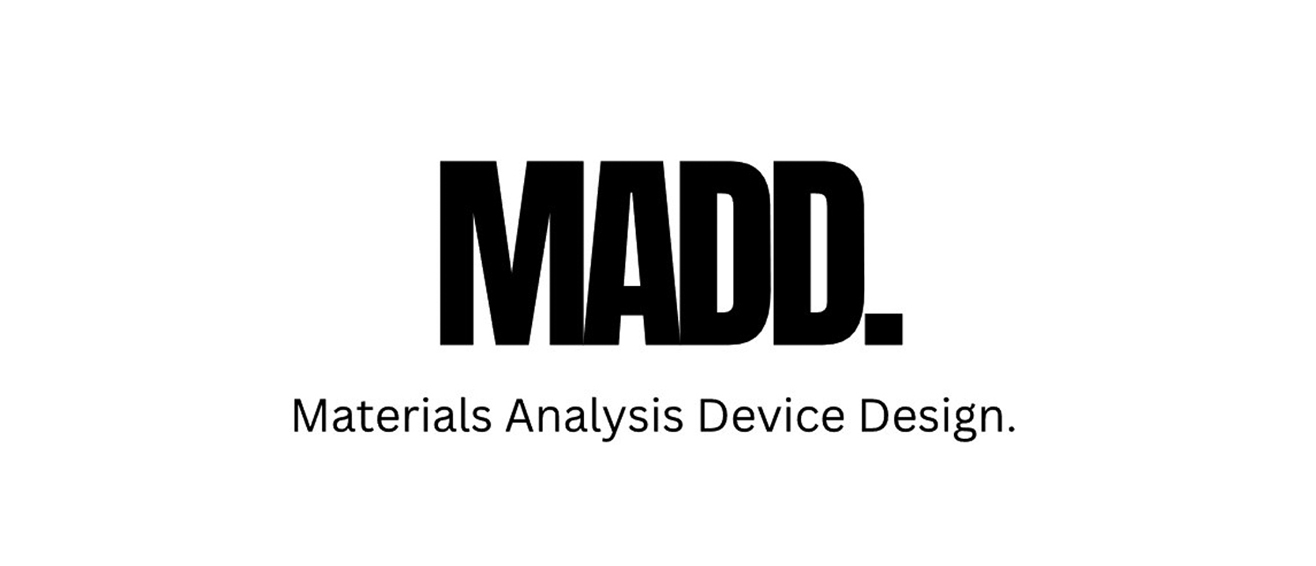
MADD
From modelling to implementationMADD Research Group focuses on developing materials and devices specifically designed for energy conversion and storage. We employ a comprehensive approach that encompasses modelling, synthesis, and practical device applications. By leveraging advanced materials and innovative design techniques, we aim to enhance the efficiency and functionality of energy systems.
The key underlying theme across our activities is materials engineering and device fabrication: understanding how a material can provide an engineered solution to current problems, with a focus on the UK Government’s priorities of Net Zero and Sustainability. We also deliver skills development through educational initiatives and outreach activities.
Our expertise spans across four core pillars:
- Materials Design
- Materials Synthesis
- Energy Conversion
- Energy Storage
Materials Analysis Device Design is led by Dr Suela Kellici. We are always interested in new collaborations and opportunities (industry and academia) and welcome informal discussions. Get in contact with us (email Dr Suela Kellici at kellicis@lsbu.ac.uk ) to find out more.
Alternatively, visit individual member profiles to learn more about their research.
Our academics in action:
From fire to pyro, sustainable energy through materials engineering by Professor Steve Dunn
Continuous production of 2D materials - Nano2D Lab – Associate Professor Suela Kellici
Women in Engineering
Dr Zhen Lu talks about his PhD time at LSBU
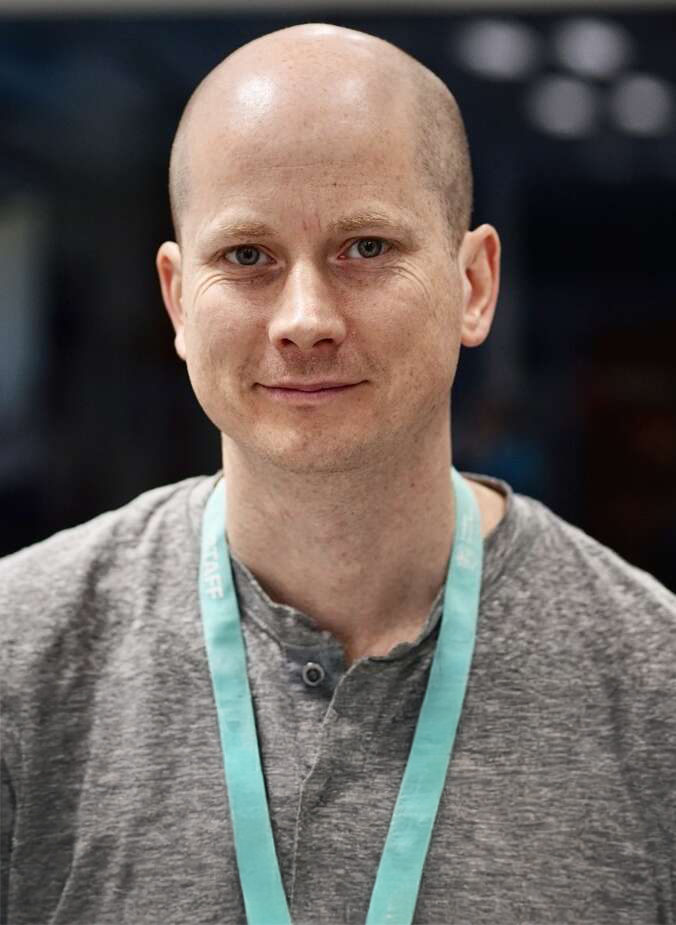
- Dr John Buckeridge
Computation of fundamental properties from first principles; Defects in semiconductors; Dynamical properties of materials and phase transitions; Charge and heat transport; Multiscale methods (QM/MM) and method development; Energy materials modelling (solar, thermoelectric, fuel cells, photocatalysis); Micro- and opto-electronic semiconductor materials; High performance computing; Application of quantum computing to materials modelling. 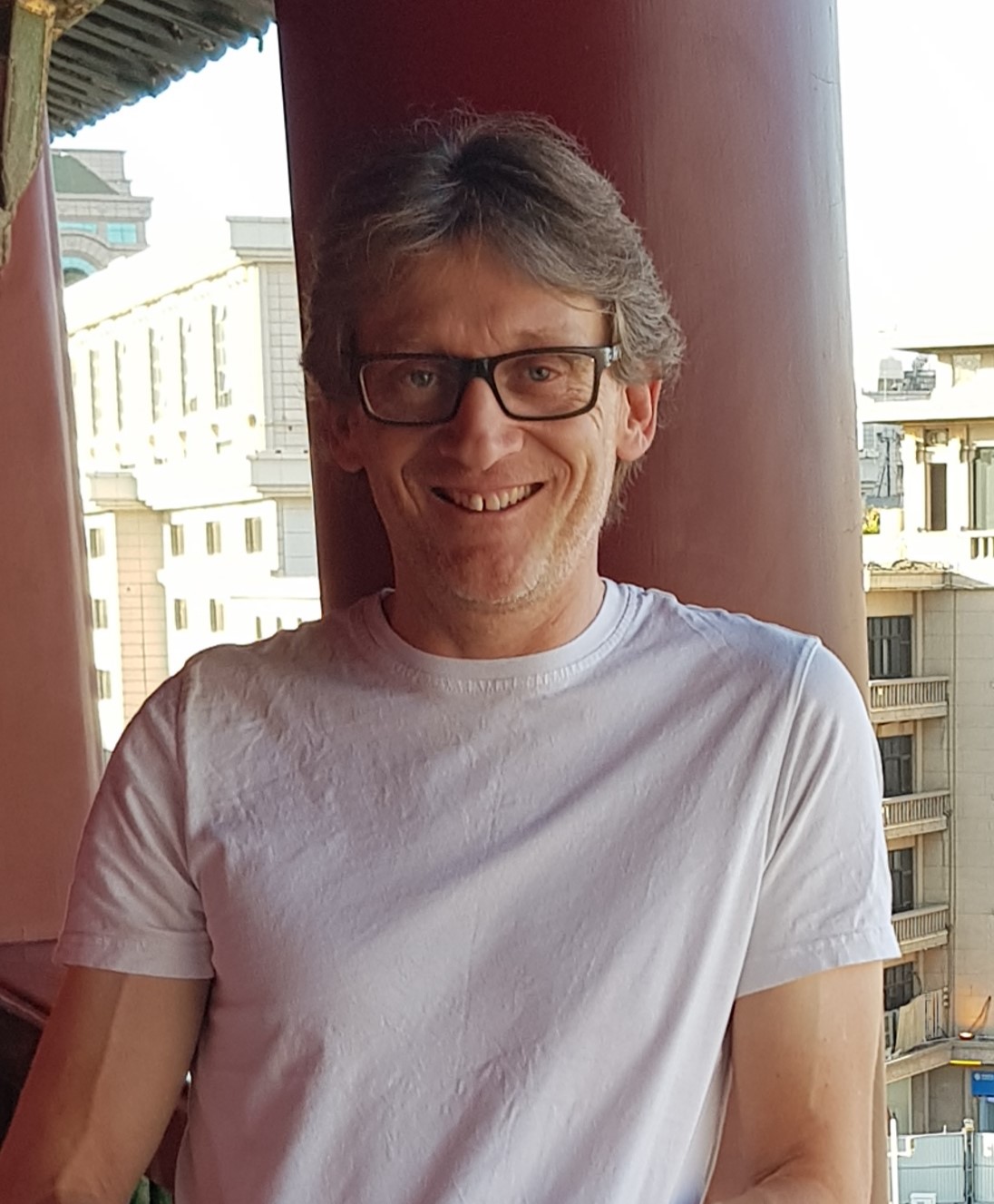
- Professor Steven Dunn
Ceramic processing; Functional ceramics; Sustainable fuels; Piezocatalysis; Photochemistry; Water splitting; Carbon dioxide chemistry; Interests in battery materials. 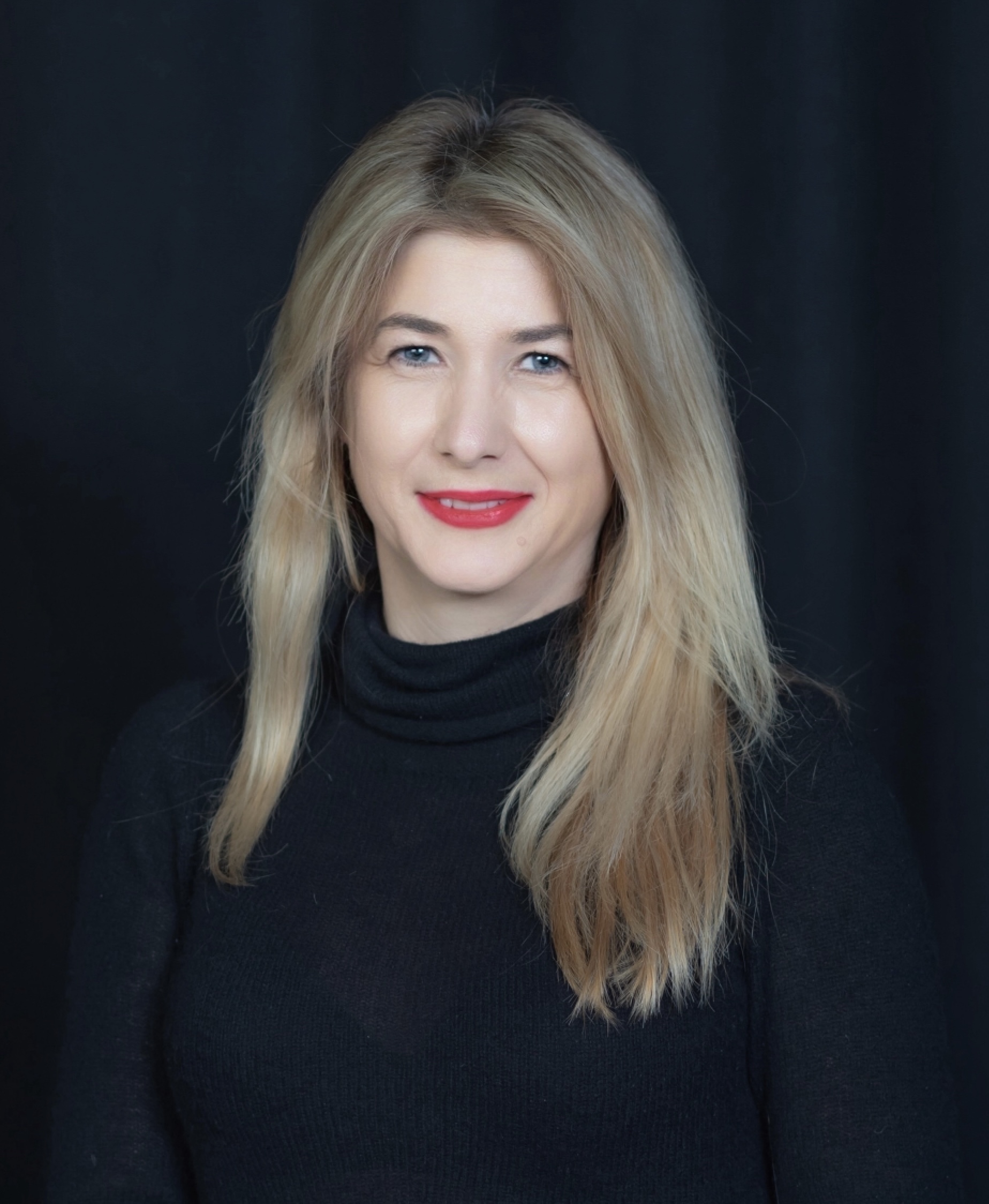
- Dr Suela Kellici
Continuous materials synthesis; Clean technologies; Advanced materials: 2D derivatives, metal oxides, metals, nanocomposites, carbon related, quantum dots; Photochemistry; Water treatment; Energy storage; Solar green fuel; Catalysis. 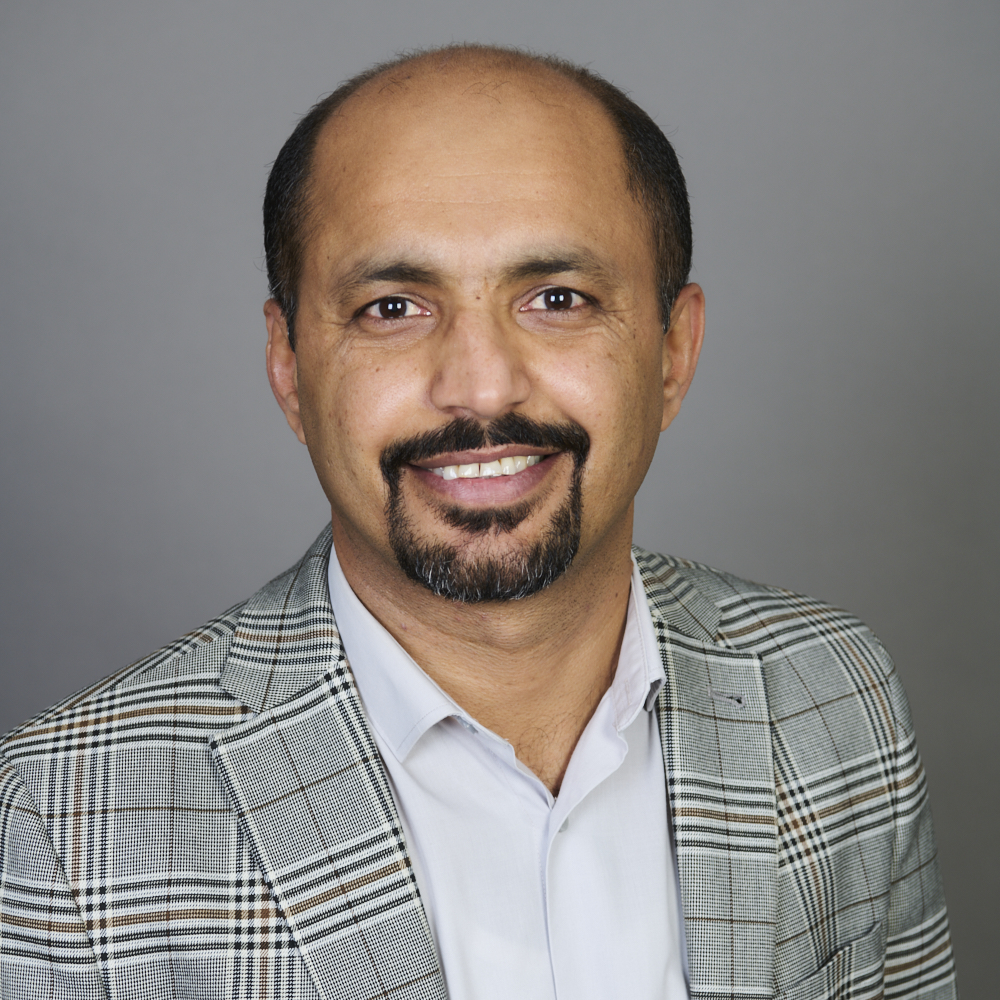
- Dr Tariq Sajjad
Photophysics of Materials and Devices; Light-emitting Devices; Solar Cells & Solar Fuels; Photo-assisted batteries; Optical Communication; Skin cancer diagnosis via multispectral detection and treatment via photodynamic therapy (PDT); Agritech. 
- Dr Sanjayan Sathasivam
Transparent electrodes; Thin film photoelectrochemistry; Anti-wetting surfaces.
Research themes
Computational Materials Design for Energy
Understanding materials at the atomic scale is critical to the design of next generation energy devices. Modern computational chemical and physical techniques can be employed to predict for example the electronic and optical properties of an active layer in a device, the dopability of a semiconductor, or the efficiency and mechanism of catalytic processes on the surface of a material. At the MADD, the team works closely with experimentalists to develop novel photocatalysts, energy generation and storage devices, functional thin film coatings and microelectronics, utilising our in-house supercomputer, and national high performance computing resources. LSBU is part of a multi-partner £1M UKRI-funded project to investigate novel computational methods for next-generation exascale computing. We are also active in developing sustainable computational and synthetic techniques.
Synthetic Methodologies
Employing a target-orientated approach, we rationally design and manufacture materials aiming to deliver world class materials engineering. We have established expertise in a variety of materials synthesis techniques from optimised conventional routes to green continuous synthetic processes, e.g., continuous hydrothermal flow synthesis, processes that enable a step change in cost, materials performance and durability.
Our materials portfolio includes an array of functional metal oxides (homo/hetero), metals, quantum dots (e.g. graphene, biomass derived carbon quantum dots) and 2D (e.g. graphene, MXene) hybrid structures. The materials are employed across a range of applications in energy storage, environmental, and bio-related.
Energy Storage
Our team works in the development of batteries (Li -ion and beyond) and supercapacitors focusing on-demand bespoke tailoring of the functional properties of electrode materials (theoretical and experimental) to deliver advancements in their application.
Energy Conversion
In response to advancing climate change and energy crisis concerns, immediate measures are needed to minimize our dependency on fossil fuels and speed the transition to a low-carbon economy. Solar energy for example can provide an effective and sustainable solution to both energy and environmental crises.
Our team is involved in the following areas:
- Photovoltaics: Solar cells (perovskite, organic and inorganic based). The research is focused on the development of solar cells, LEDs, and on understanding the physics of materials and devices, with the aim of improving them.
- Renewable fuel production: Photocatalysis, can readily harness freely available clean solar energy (in the presence of a catalyst) to generate hydrogen and oxygen by the splitting of water or reduced carbon compounds from carbon dioxide. Alternatively, we use pyroelectric or multiferroic/magnetoelectric materials to generate hydrogen from transient low-grade waste heat (<100°C) or in the presence of magnetic field, respectively.
FLAGSHIP PROJECTS
| Future Computing Paradigms for Materials Modelling |
|---|
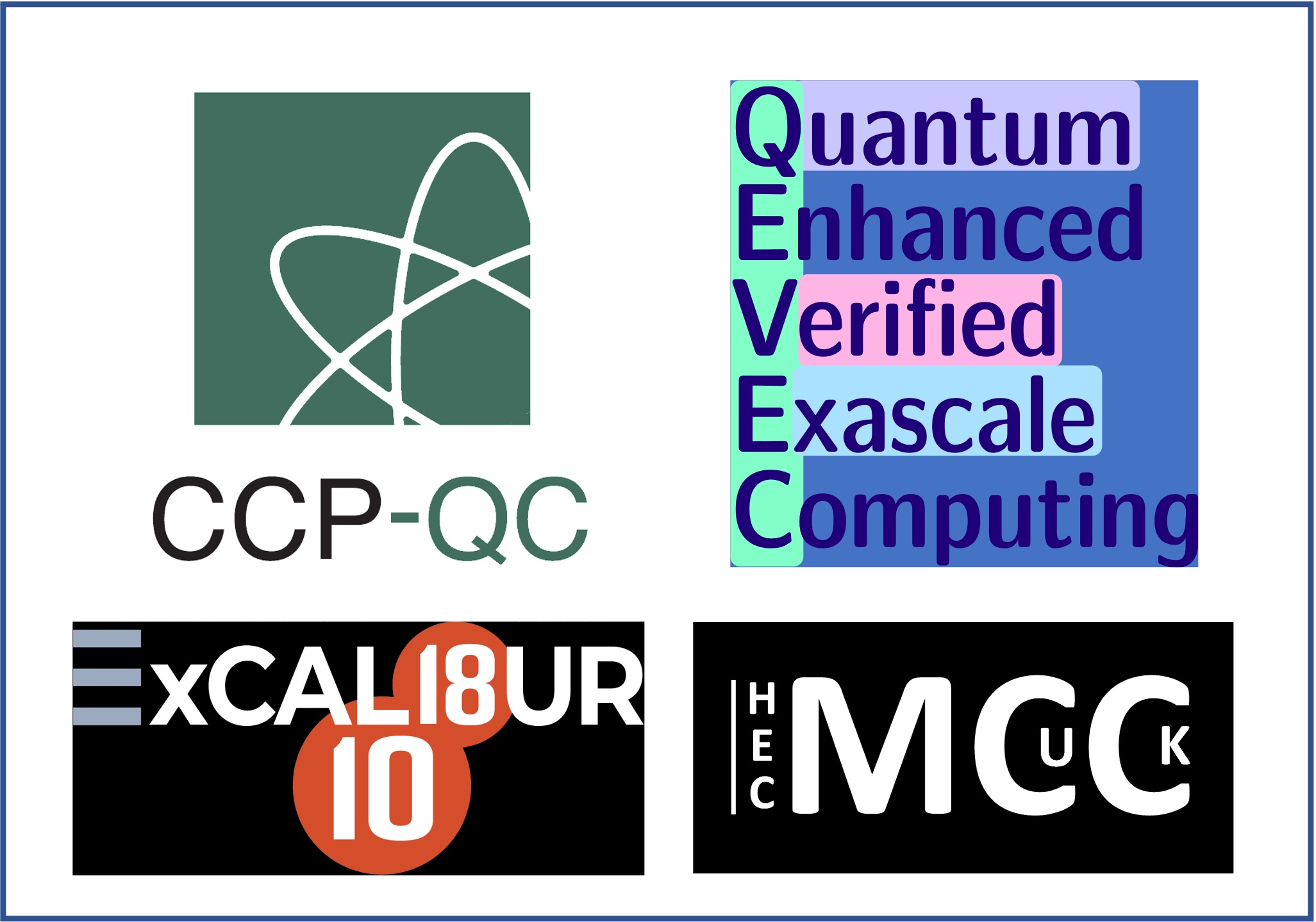 Computational materials science is an energy-intensive endeavour, and any future developments in hardware and software must be sustainable to be viable. Future supercomputing architecture will, by necessity, incorporate different technologies to achieve 'exascale' performance (that is, at or above one million trillion flops). One component that shows significant potential is quantum computing. At present, the technology is in its infancy, and "noisy intermediate-scale quantum" computing needs to be explored to see if any advantages can be gained now. Dr Buckeridge is co-chair of the EPSRC-funded collaborative computational project, CCP-QC, which aims to bring together scientists that design quantum algorithms with end users, specifically materials scientists, fluid dynamics modellers and industrial partners. He is also knowledge exchange coordinator for the UKRI-funded QEVEC project, part of the ExCALIBUR programme that is getting the UK ready for exascale computing. QEVEC aims to explore the current capabilities of quantum computing for applications in materials science, hydrodynamics and cosmology. Furthermore, he is a management steering committee member of the EPSRC-funded Materials Chemistry Consortium (MCC), which is a major user of the UK national supercomputer ARCHER2. The MCC has grown over two decades to incorporate over 100 research groups in the UK, through which they gain access to ARCHER2. Dr Buckeridge jointly leads the Novel Algorithms theme for the MCC.
Computational materials science is an energy-intensive endeavour, and any future developments in hardware and software must be sustainable to be viable. Future supercomputing architecture will, by necessity, incorporate different technologies to achieve 'exascale' performance (that is, at or above one million trillion flops). One component that shows significant potential is quantum computing. At present, the technology is in its infancy, and "noisy intermediate-scale quantum" computing needs to be explored to see if any advantages can be gained now. Dr Buckeridge is co-chair of the EPSRC-funded collaborative computational project, CCP-QC, which aims to bring together scientists that design quantum algorithms with end users, specifically materials scientists, fluid dynamics modellers and industrial partners. He is also knowledge exchange coordinator for the UKRI-funded QEVEC project, part of the ExCALIBUR programme that is getting the UK ready for exascale computing. QEVEC aims to explore the current capabilities of quantum computing for applications in materials science, hydrodynamics and cosmology. Furthermore, he is a management steering committee member of the EPSRC-funded Materials Chemistry Consortium (MCC), which is a major user of the UK national supercomputer ARCHER2. The MCC has grown over two decades to incorporate over 100 research groups in the UK, through which they gain access to ARCHER2. Dr Buckeridge jointly leads the Novel Algorithms theme for the MCC.
| H2020 Project: Solvent Based Polymer Recycling |
|---|
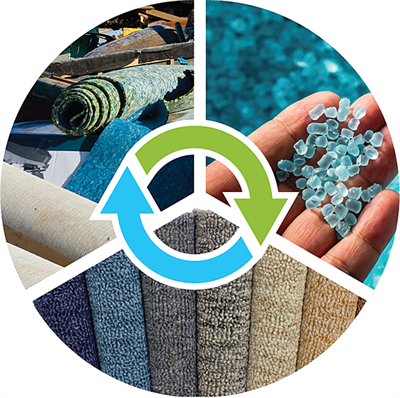 ISOPREP TM is a multidisciplinary consortium of 10 partners located across Europe in Germany, Austria, Turkey, Portugal delivering technologies that convert waste plastic into virgin-like plastic. Funded by the European Union’s Horizon 2020 research and innovation programme under grant agreement number 820787, ISOPREPTM, developed a closed-loop recycling plant able to reclaim and process polypropylene from complex multi-material products, such as carpet waste, into virgin-like polypropylene of high purity and material/grade homogeneity. The process utilised a high performance proprietary ionic liquid that allows selective dissolution of the polypropylene, high dissolution rates and large cycle time of utilisation before regeneration is required. Respecting the environment, the whole process is carried out in a closed-loop system that leads to minimal to no waste generated from the process. The process is designed to be cost effective and superior to existing alternative recycling methods. The long-term objective of the partnership is to increase circularity of thermoplastics and composite materials, preventing down-cycling and material waste; all in an affordable and eco-friendly manner.
ISOPREP TM is a multidisciplinary consortium of 10 partners located across Europe in Germany, Austria, Turkey, Portugal delivering technologies that convert waste plastic into virgin-like plastic. Funded by the European Union’s Horizon 2020 research and innovation programme under grant agreement number 820787, ISOPREPTM, developed a closed-loop recycling plant able to reclaim and process polypropylene from complex multi-material products, such as carpet waste, into virgin-like polypropylene of high purity and material/grade homogeneity. The process utilised a high performance proprietary ionic liquid that allows selective dissolution of the polypropylene, high dissolution rates and large cycle time of utilisation before regeneration is required. Respecting the environment, the whole process is carried out in a closed-loop system that leads to minimal to no waste generated from the process. The process is designed to be cost effective and superior to existing alternative recycling methods. The long-term objective of the partnership is to increase circularity of thermoplastics and composite materials, preventing down-cycling and material waste; all in an affordable and eco-friendly manner.
Partners
MADD has a strong record of collaborative and interdisciplinary research.
Computational Material Design for Energy
Employing a target-orientated approach, we rationally design and manufacture materials aiming to deliver world class materials engineering.
We use in-house supercomputers, and have access to national high performance computing resources. We are also active in developing sustainable computational techniques.
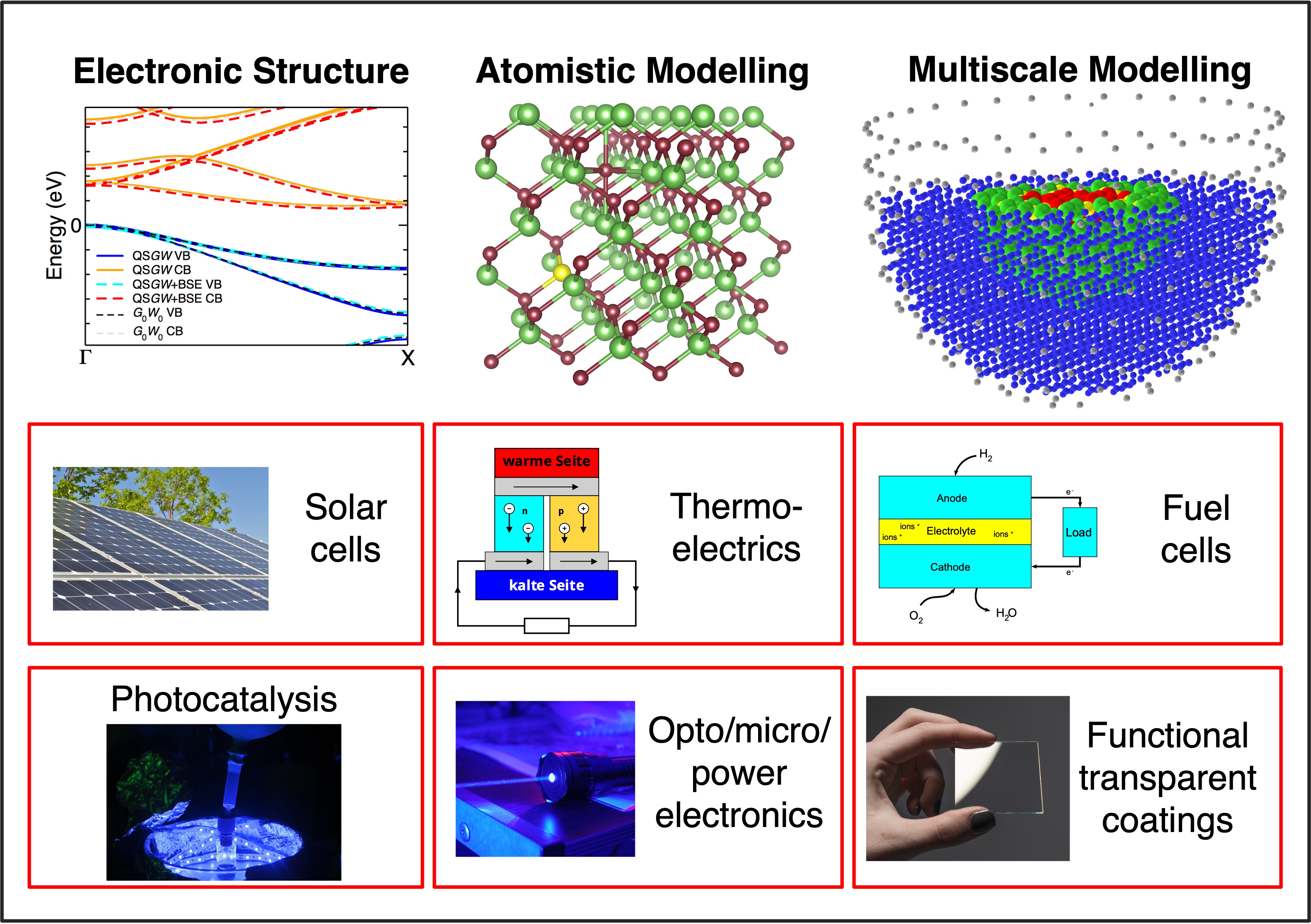
Materials Synthesis
We have established expertise in a variety of materials synthesis techniques from optimised conventional routes to green continuous synthetic processes, e.g., continuous hydrothermal flow synthesis, processes that enable a step change in cost, materials performance and durability.
Our materials portfolio includes an array of functional metal oxides (homo/hetero), metals, quantum dots (e.g. graphene, biomass derived carbon quantum dots) and 2D (e.g. graphene, MXene) hybrid structures.
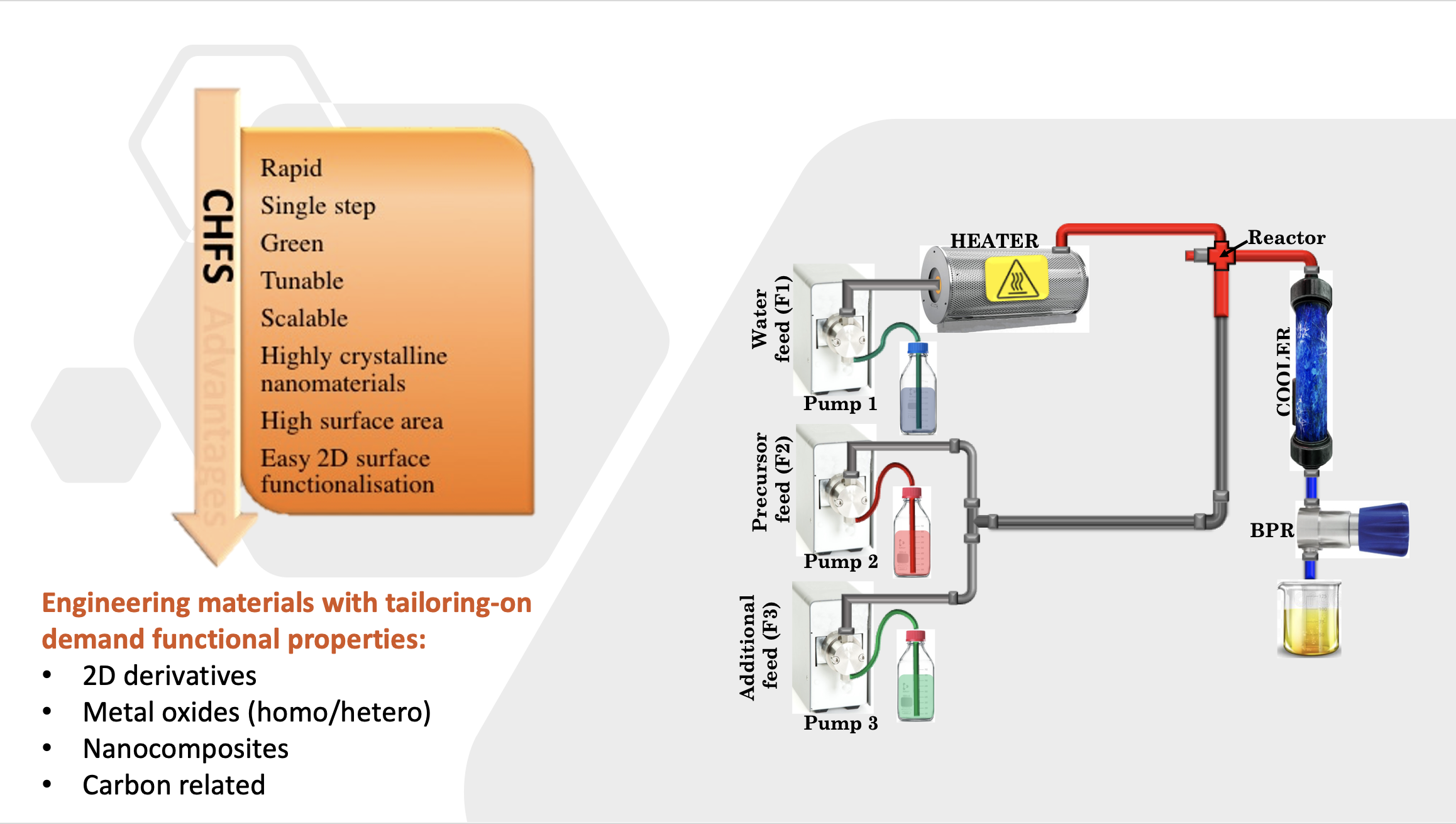
Materials Characterisation
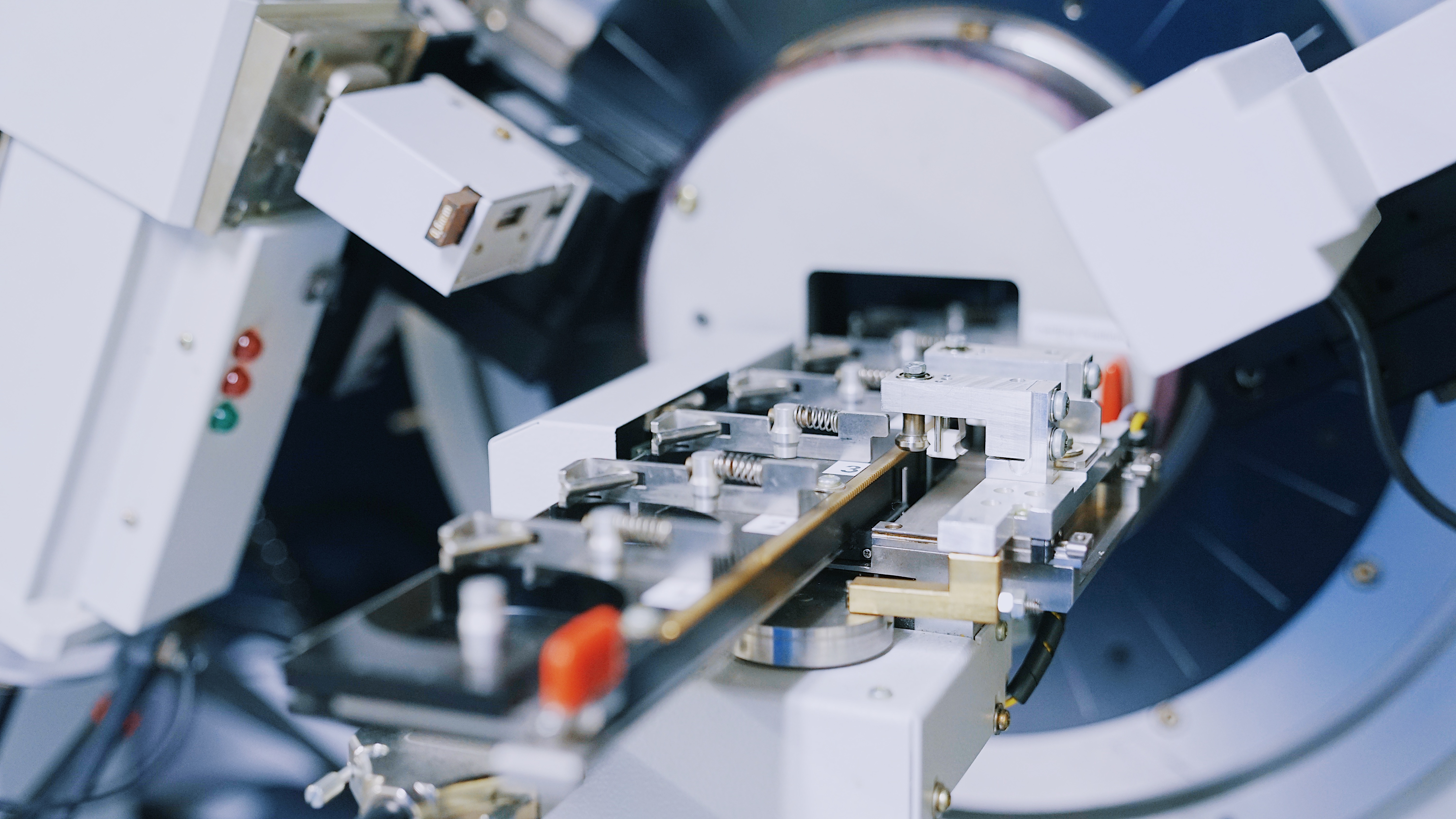
Structure and Morphology
XRD, SEM, FTIR, BET surface area, Profilometer, AFM
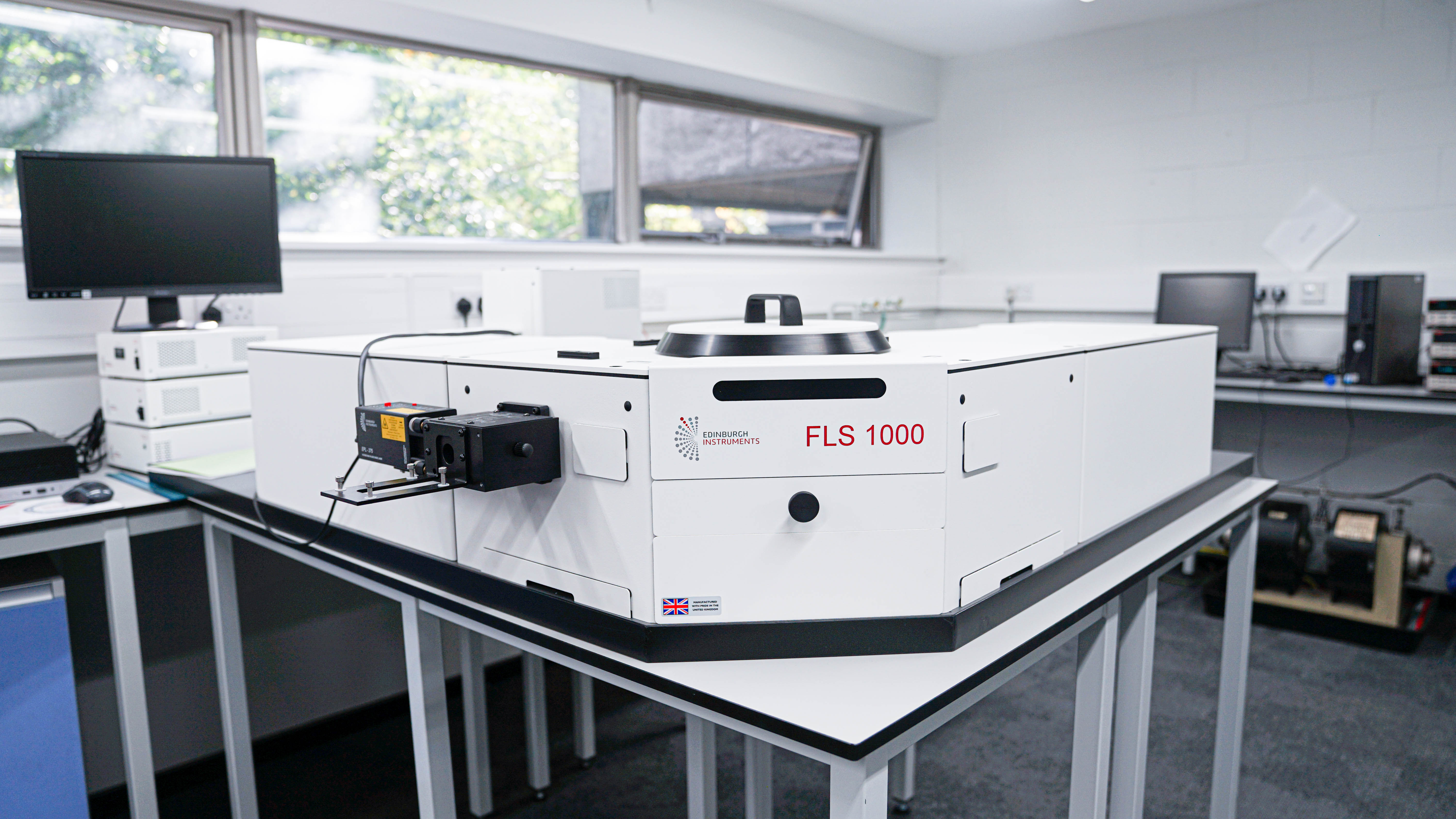
Optical
PL (Steady state and time-resolved photoluminescence spectroscopy), UV-vis, Ellipsometer
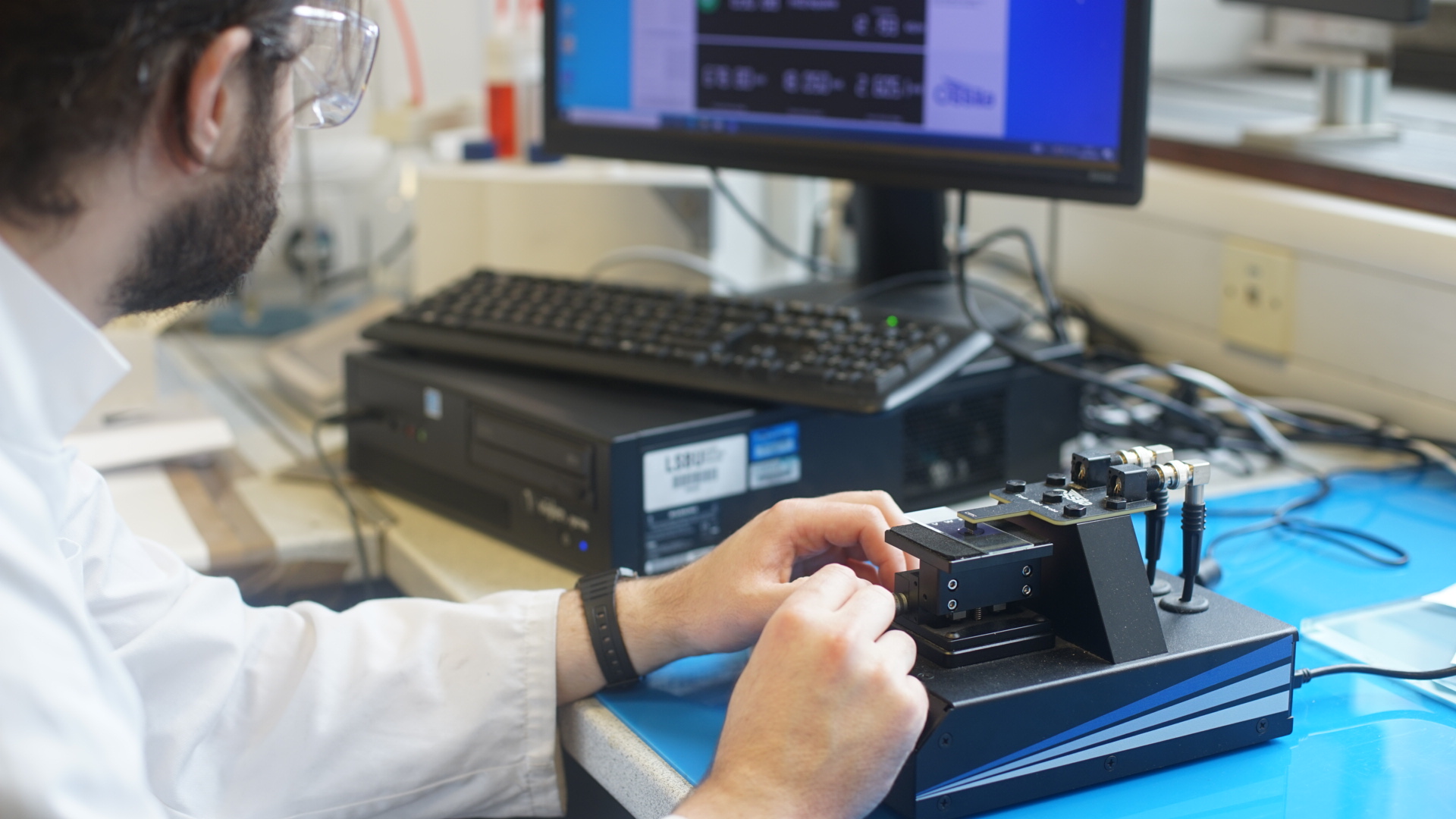
Electrical
Four point probe, Quantum Hall measurements
Device Fabrication and Performance Testing
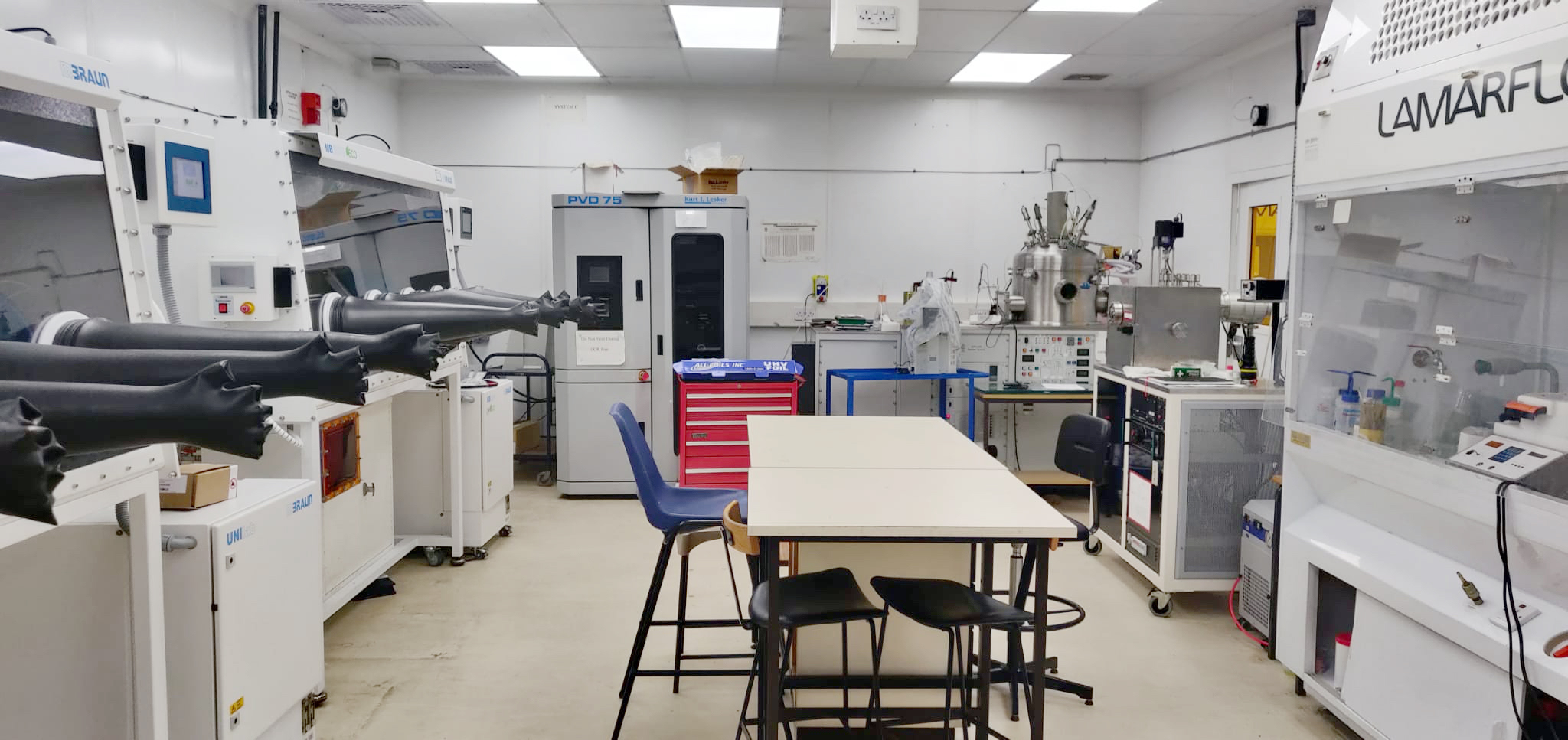
Clean Room
Our clean room is equipped with multiple state of art glove boxes, allocated to the research on photovoltaics, perovskite solar cells and energy storage (battery/supercapacitor)
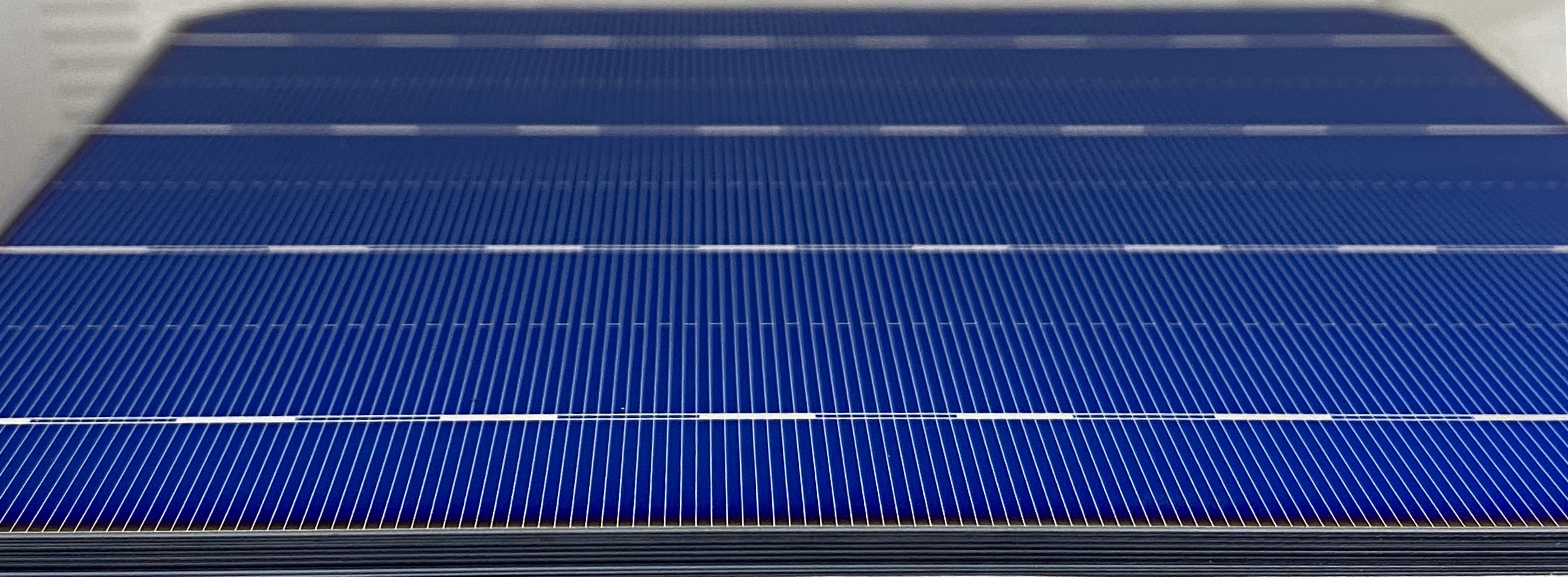
PV Solar Cells
Photovoltaics solar cells

LEDs
The MADD has facilities to characterise the performance of light-emitting devices (LEDs) and other electronic devices.

Solar Fuel Testing
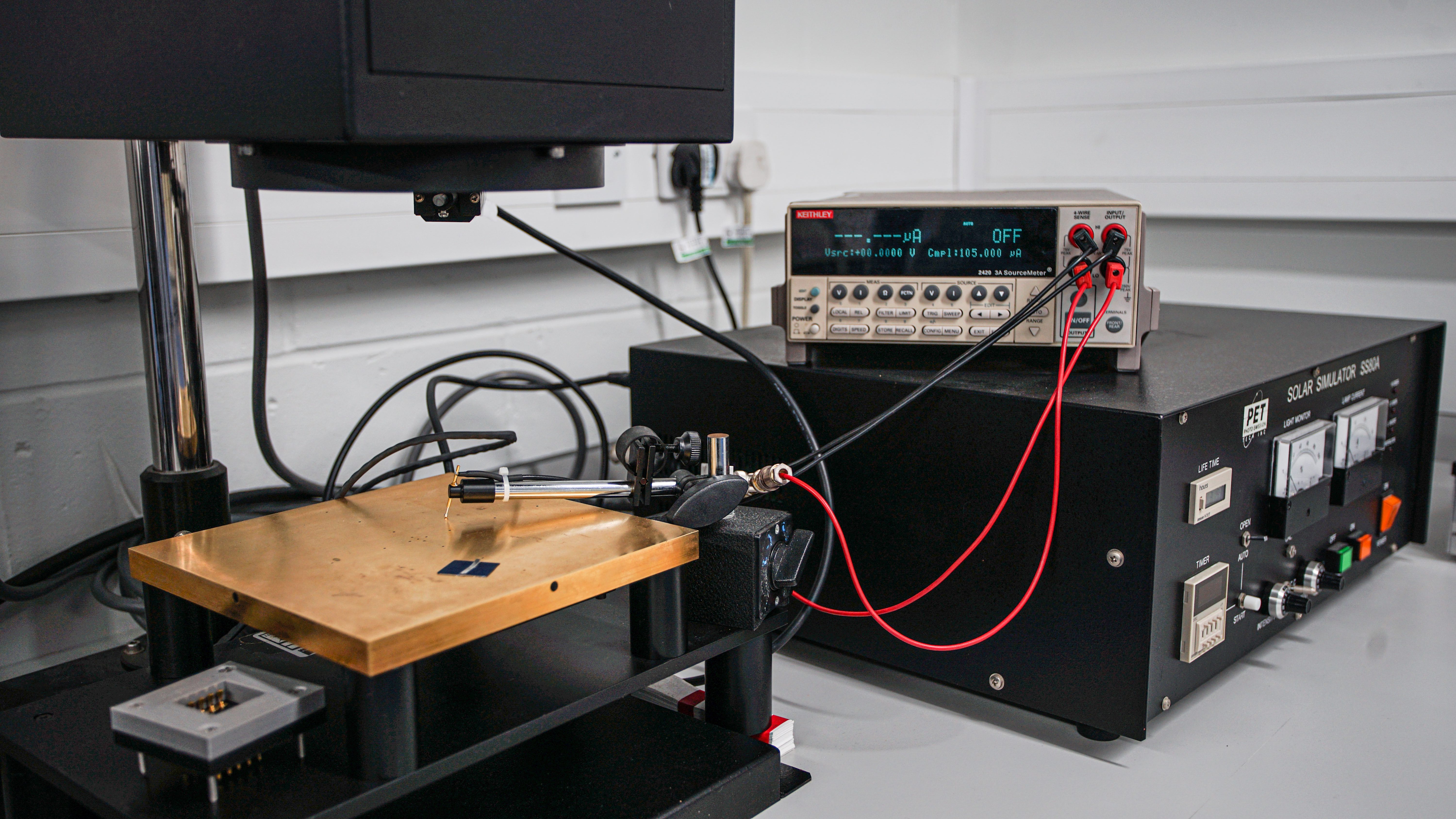
Solar Simulators
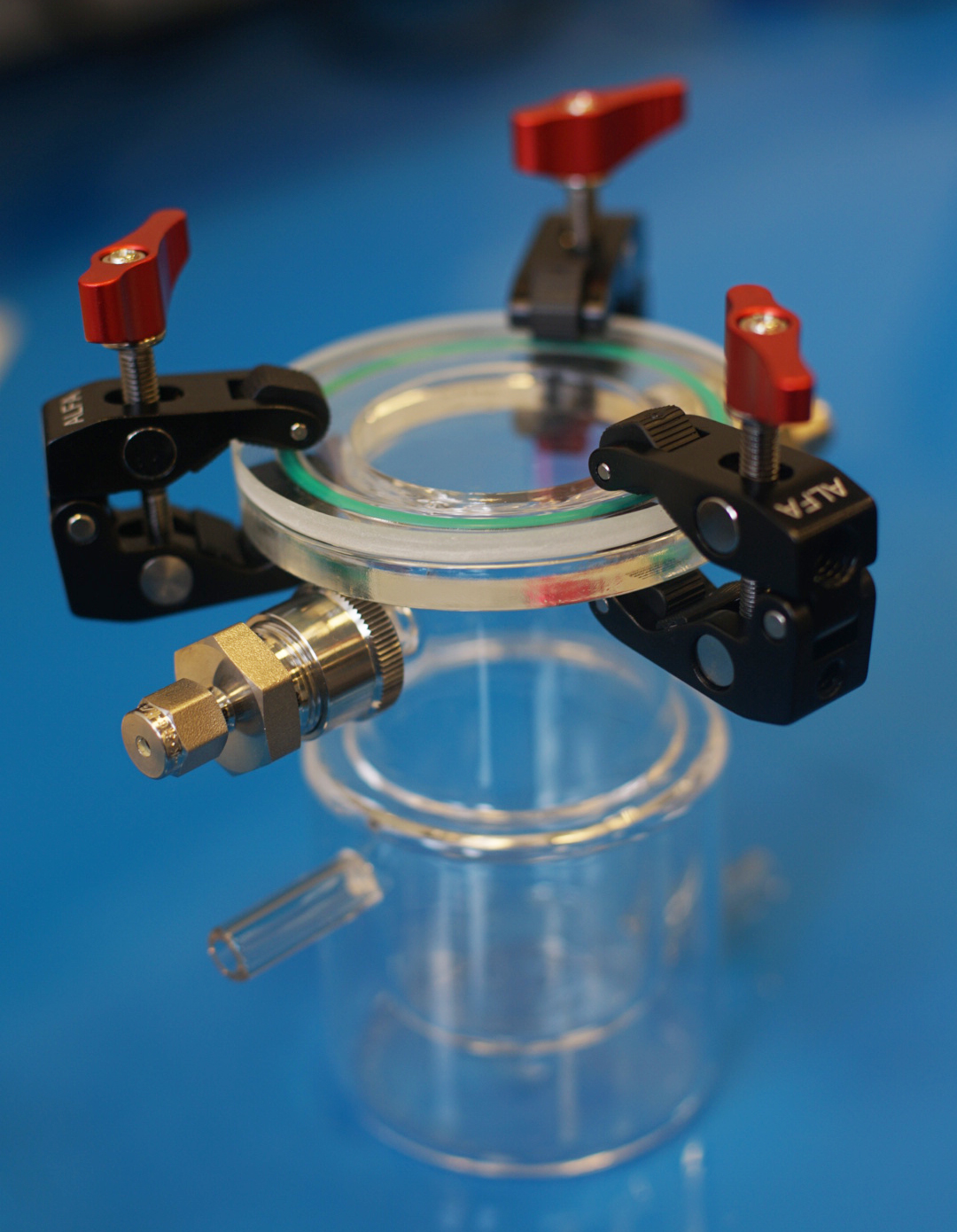
Photocatalytic Reactors
| 16th December ~ funded project Department for Science, Innovation and Technology’s International Science Partnerships Fund |
|---|
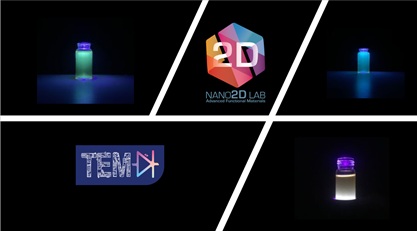
|
Tariq Sajjad and Suela Kellici have secured an international research collaboration grant to tackle food shortages via innovative materials and technologies. Our team, alongside ITU (Turkey), will develop cutting-edge nanofertilizer and nano-optical antennas. This funding, has been awarded through the Department for Science, Innovation and Technology’s International Science Partnerships Fund, supporting international research partnerships. |
| 6th December - EPSRC funding through CCP-QC |
|---|
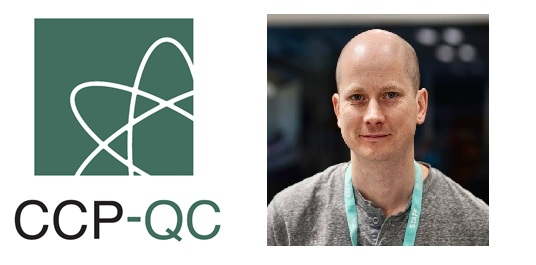
|
| We have been awarded two years EPSRC bridging funding to continue our work for the collaborative computational project in quantum computing (CCP-QC). John Buckeridge will co-chair the CCP and lead the electronic structure project with CoSeC support from STFC. |
| 11th November ~ PhD Role Models for Women in Engineering and Technology |
|---|
On November 6th, we hosted the annual Women in Engineering and Technology event for the third consecutive year! This event is a wonderful opportunity to meet passionate students and inspiring role models in the field, with over 80 students from universities across the UK on-site at our beautiful London Hub, and more than 600 joining us online. The highlight of the day was the insightful discussion by Ellie Martin, who shared her PhD journey, illustrating the vital role PhD students play in shaping the future of engineering. Abinaya Krishnamurthy and Sean Doidge supported on the day and engaged with many students during the networking event. We look forward to continuing to highlight the importance of PhD role models and fostering connections within the engineering community! |
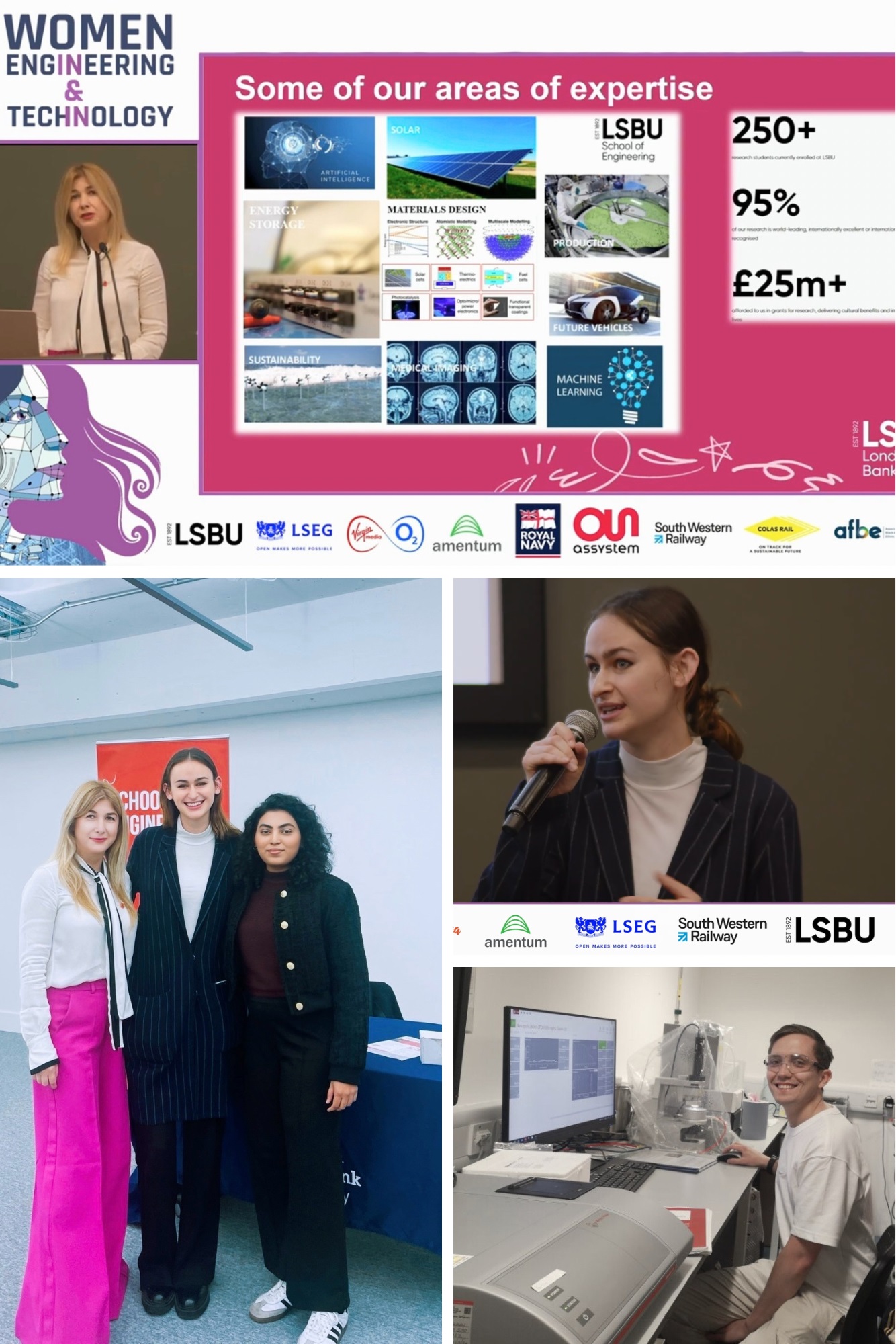
|
| 4th November - Out and About |
|---|
Our team, comprising Dr Suela Kellici, Dr Kiem Nguyen and Dr Conor Davids attended and presented their research at the joint Royal Society Chemistry- Chemical Society of Japan Symposium on "Materials for Energy Storage and Conversion" in London from 31st October 31st - 1st November 2024. Their presentations highlighted significant findings in energy materials, contributing to the ongoing discourse on advancements in energy storage and conversion technologies. This participation also strengthens our collaboration with national and international researchers in the field. We look forward to the advancements that will arise from this valuable exchange of knowledge.
|
Forging sustainable futures: Dr Kellici at UK-Cyprus Research Event Dr. Kellici attended the UK-CY Research Partnering Event in October, 2024, in London, organized by the British Council. The event brought together experts and diplomats from the UK and Cyprus to discuss advancements in energy and environmental materials. Dr. Kellici discussed collaboration and potential research partnerships, focusing on advanced materials in energy, environment, and sustainability. The event offered valuable opportunities for networking and cross-border cooperation. |
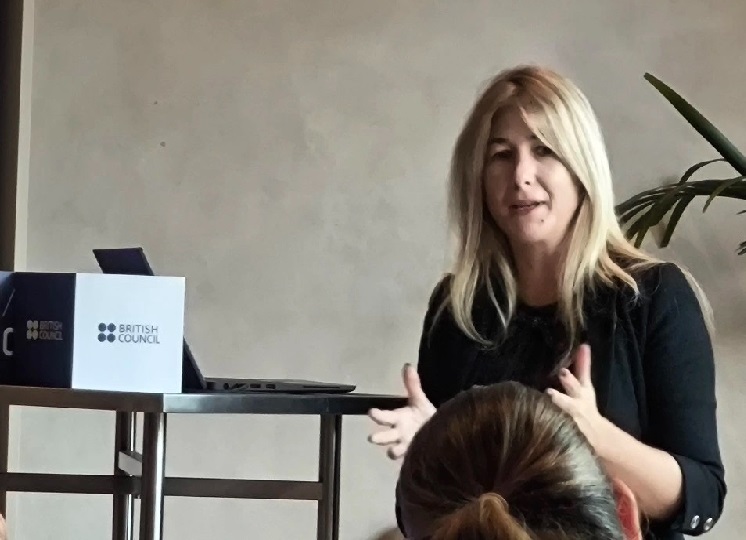
|
| 23rd October 2024 ~ Graduation of School PhD students |
|---|
| As part of the School of Engineering's graduation we saw PhD students associated with the University Centre graduate. A big congratulations to Conor, Guru and Kiem... Well done! |
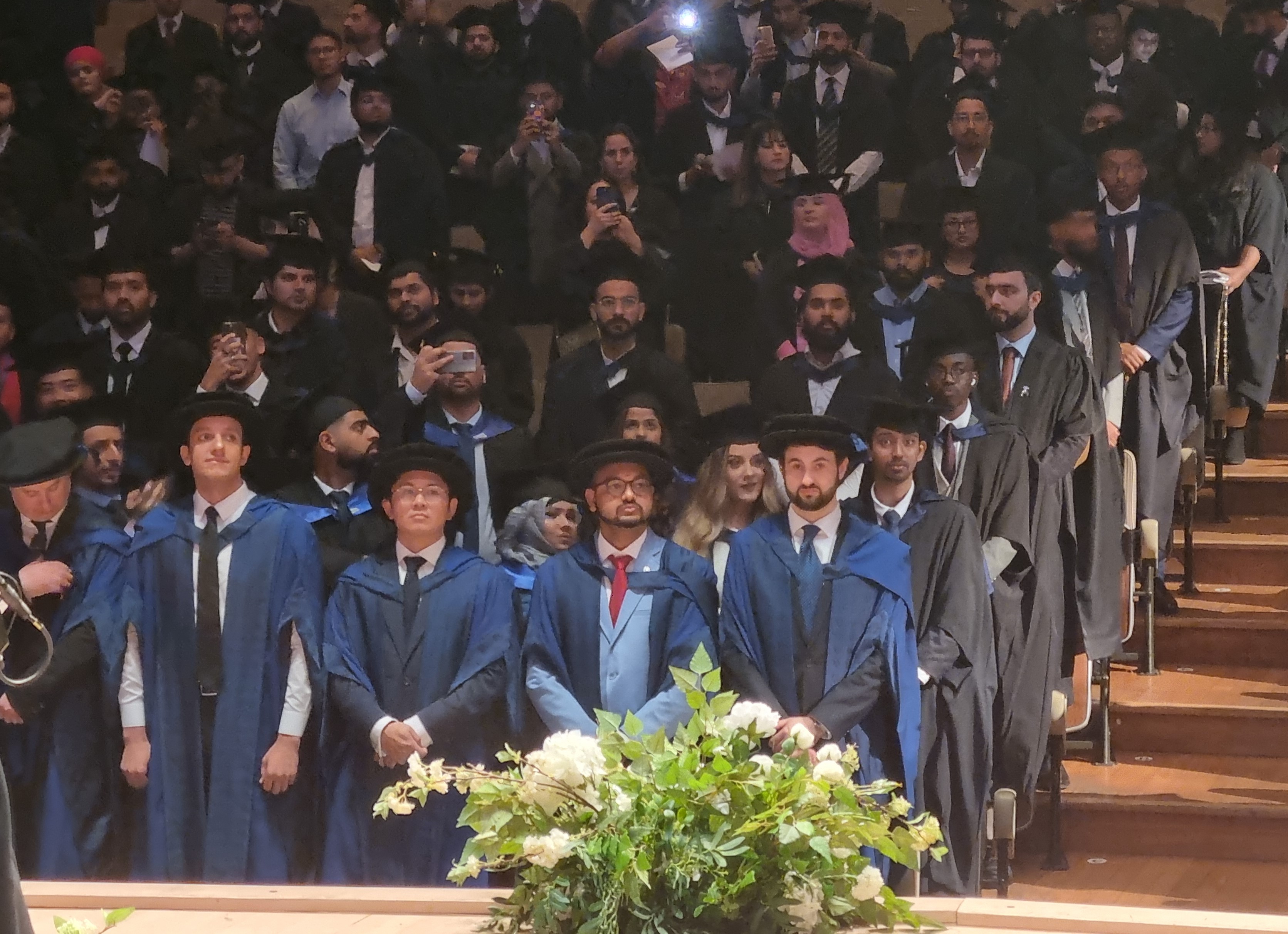
|
| 18th October 2024 ~ Paper published in Advanced Sustainable Systems |
|---|
| Piezocatalysis has emerged as a promising field of research that uses mechanical energy to drive a chemical change. There is growing evidence that piezocatalysts can perform challenging chemical conversions from organic transformations to water splitting. A key challenge to piezocatlaysis is mitigating the inherent high relative permittivity of a ferroelectric material. This high permittivity restricts the transfer of carriers required for a chemical reaction to occur and reduces the reaction rate. Here the concept of producing a co-catalyst system is taken to enhance carrier mobility increasing the observed reaction rate. The study highlights the importance of determining the sonochemical and piezocatalytic contributions to catalysis. |
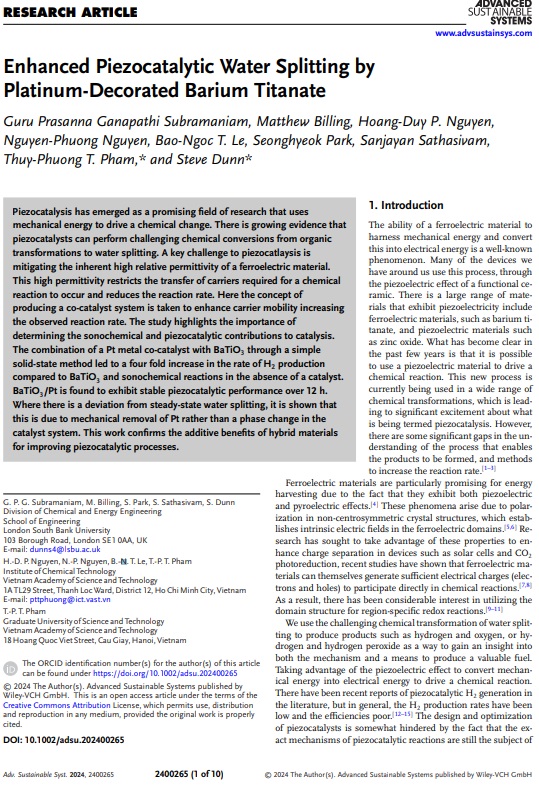
|
Paper Published, invited article in Carbon
17th October 2024 ~ Paper Published, invited article in Carbon |
|---|
A study led by LSBU in collaboration with the National Institute of Materials Physics (Romania), National Institute of Chemistry (Slovenia), The Open University (UK), and the Max Planck Institute (Germany) reveals a unique approach to controlling the optoelectronic properties of nitrogen-doped carbon quantum dots (NCQDs) using biomass-derived precursors. The method employs a green, rapid continuous hydrothermal flow synthesis (CHFS) to transform complex biomass sources like chitosan and lignin into high-quality NCQDs. This research combines in-depth experimental photophysics characterization with theoretical modelling, demonstrating that precursor structure significantly influences NCQD size and optical properties. Life cycle assessments confirm that CHFS is a sustainable and scalable alternative to traditional batch methods, paving the way for economically viable large-scale production. |
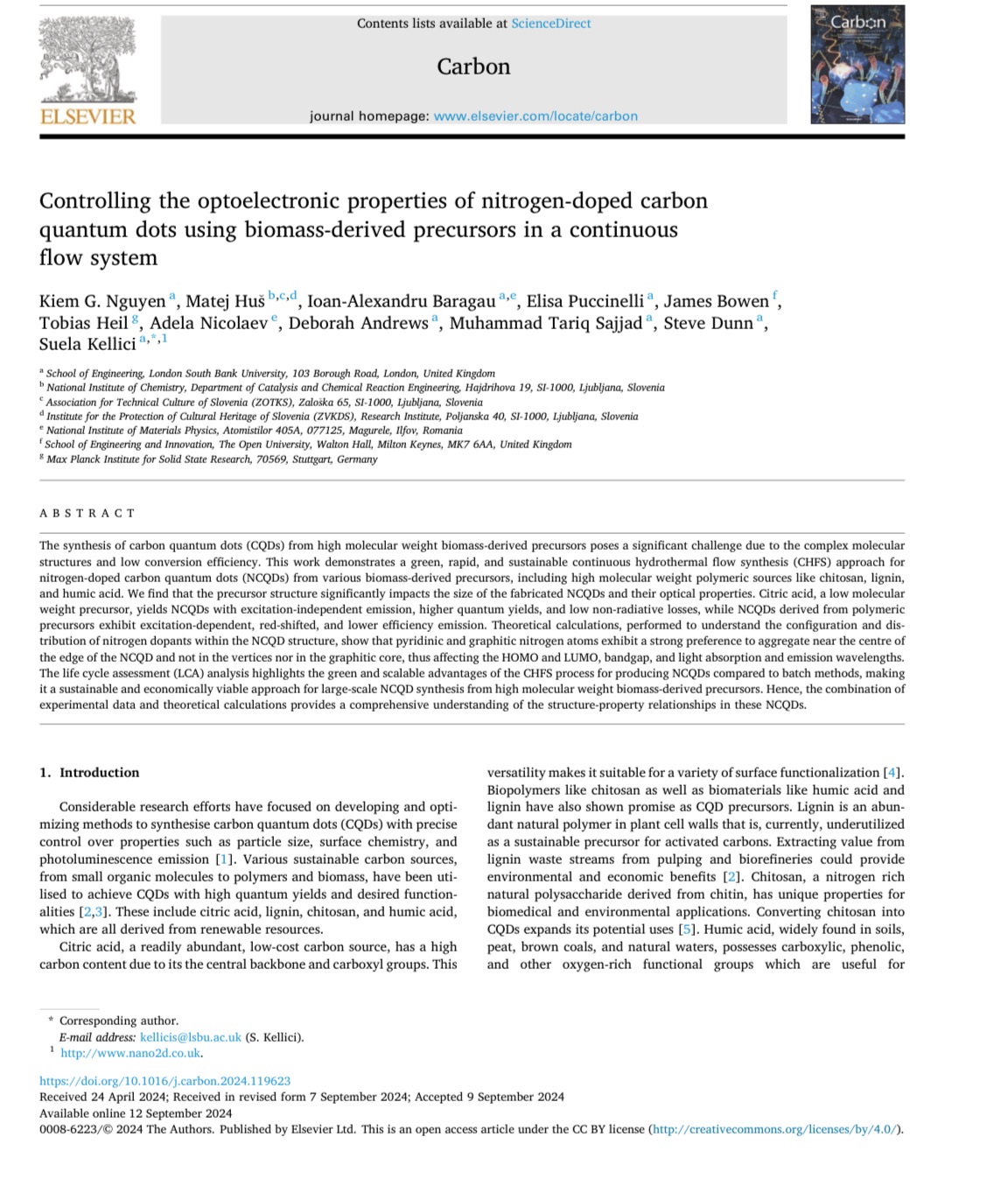 |
18th MADD. Memebers enjoyed their hiking up Box Hill |
|---|
MADD. members took a refreshing break from their lab work by hiking up Box Hill on a sunny September 18, 2024. The team (Academics, PhD students and a little one), energized by the scenic trails and open air, following the hike, they finished the day by relaxing over beers at a local pub, sharing laughs and discussing both research and life. |
 |
15th February 2024 LSBU ENGINEERING RESEARCH HIGHLIGHTED BY ROYAL SOCIETY OF CHEMISTRY |
|---|
The Royal Society of Chemistry’s, Journal of Materials Chemistry A has included an article by Dr Suela Kellici, Associate Professor in Materials Engineering from London South Bank University (LSBU), in their 2023 Most Popular Articles collection. This collection by a very highly ranked research journal highlights articles in 2023 which received major attention from readers (citations, downloads and shares). Click here for more details. |
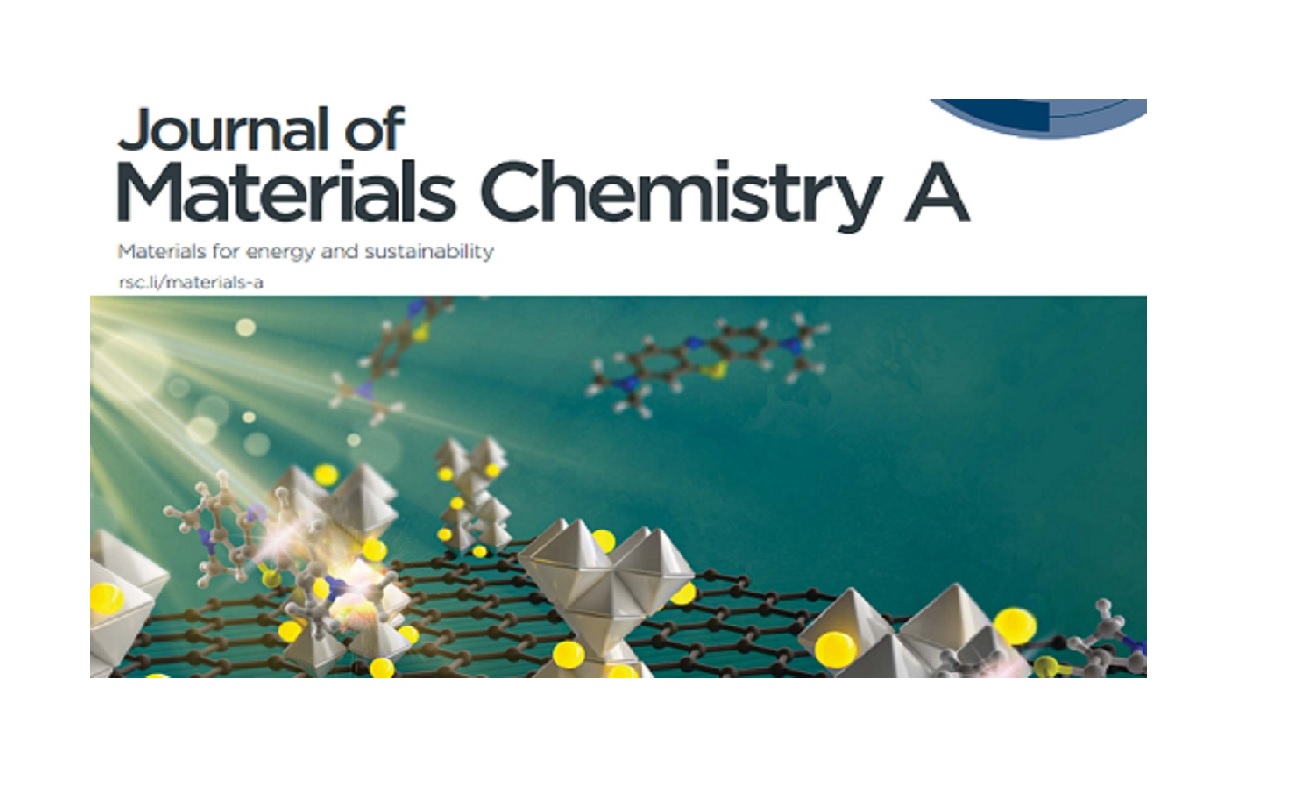 |
15th February 2024 Celebrating Excellence in Education: |
|---|
Congratulations to our team members Dr Tariq Sajjad and Dr Suela Kellici for their achievements at LSBU Education Awards 2023. The LSBU Education Awards 2023 recognizes those who made exceptional contributions to the learning experience and success of our students. 🏆 2023 Education Award Winners 🏆 Postgraduate Dissertation Supervisor of the Year – Dr Tariq Sajjad. Tariq’s exceptional guidance, mentorship, and support have empowered postgraduate students to produce outstanding dissertations. Your dedication to their academic success is truly commendable, Tariq! PGR Supervisor of the Year: Dr Suela Kellici Suela's unwavering commitment to the growth and development of postgraduate research students has played a pivotal role in shaping their successful academic journeys. Congratulations, Suela, on this well-deserved honour. We extend our heartfelt congratulations to all the winners of the Education Awards 2023! We would also like to express our sincere gratitude to those who took the time to nominate. Their recognition and support are invaluable in celebrating the outstanding achievements within our university community. Let's continue to make a difference and empower the next generation of learners! |
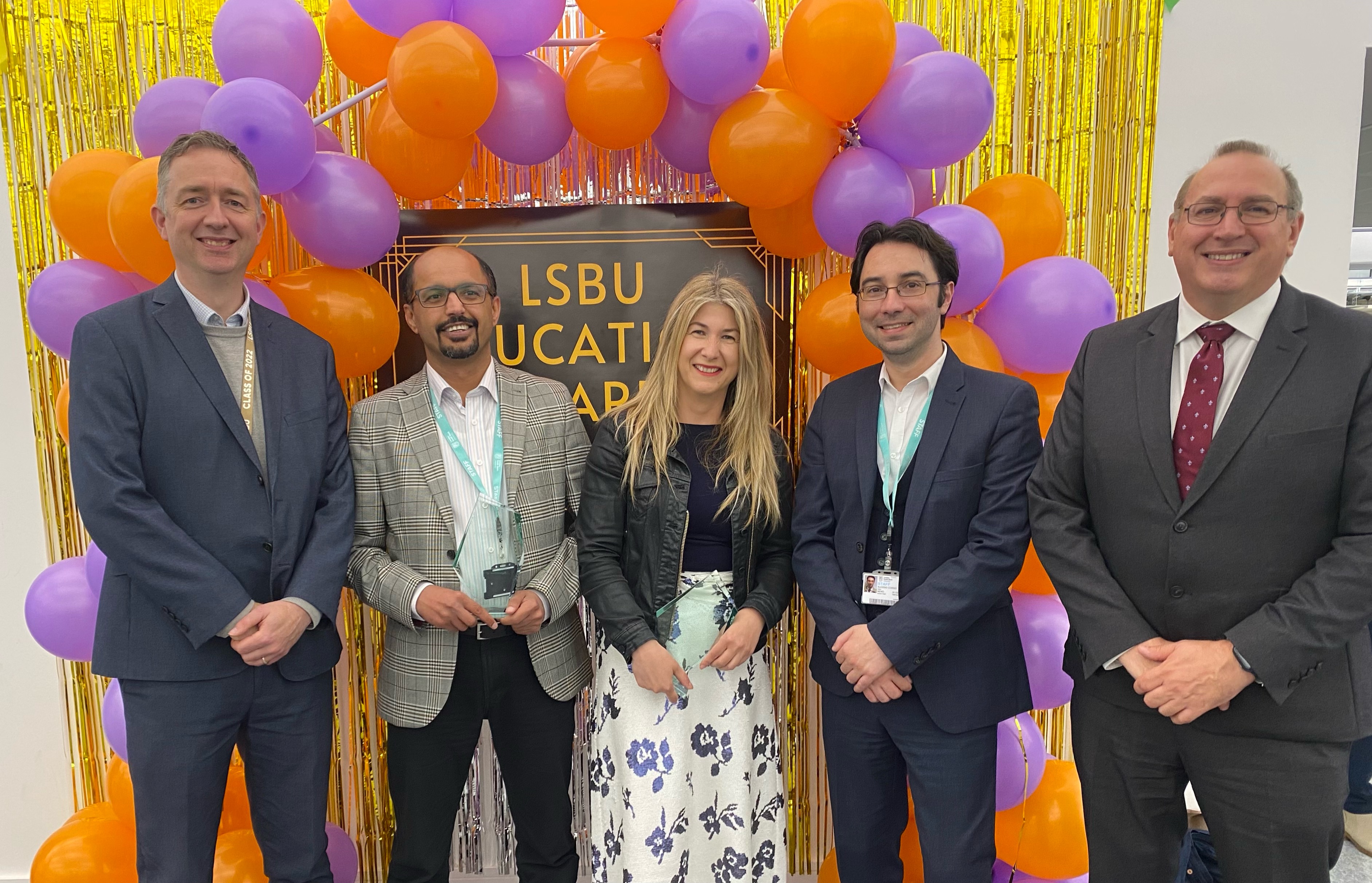 |
